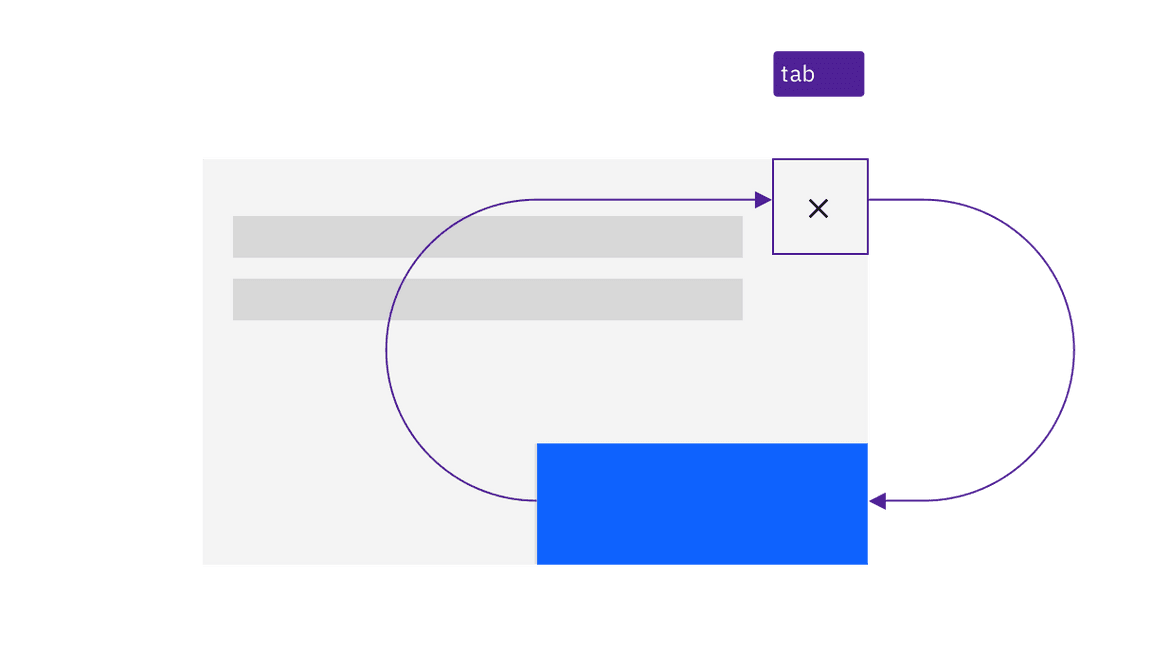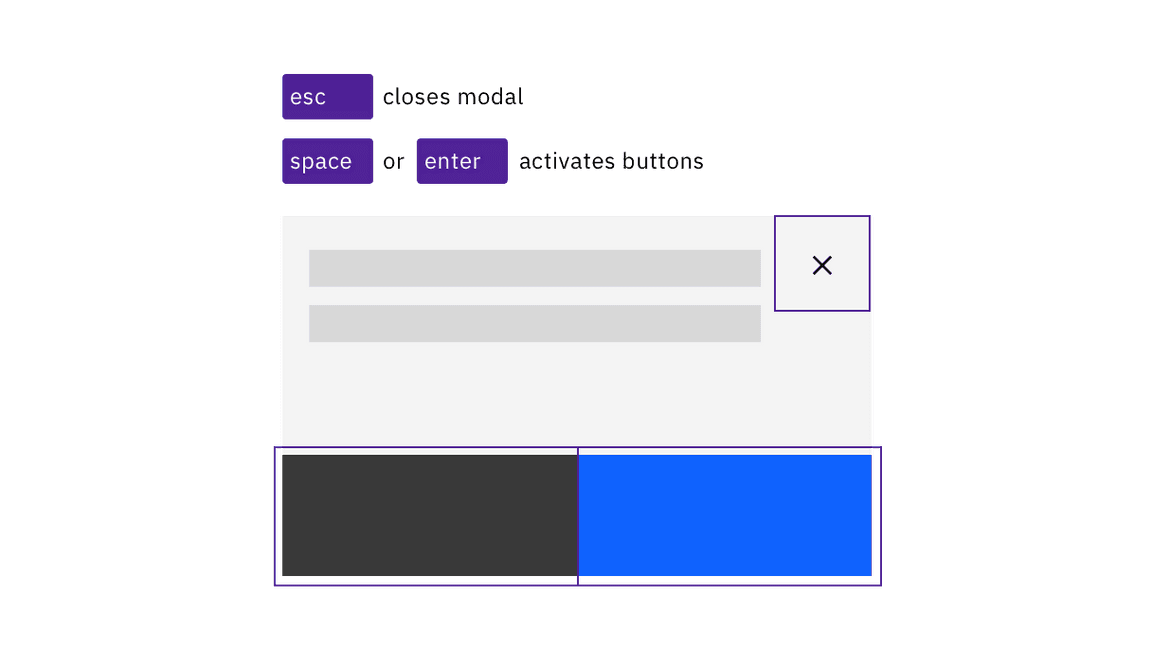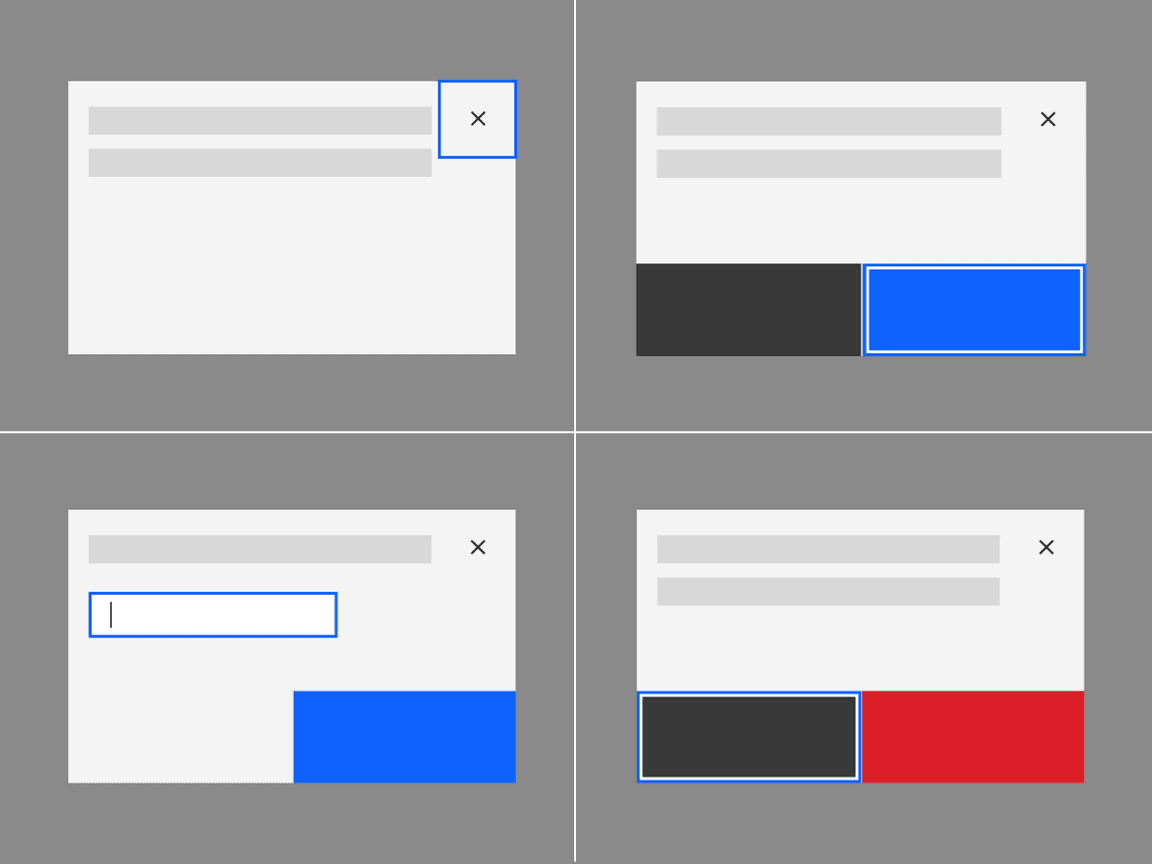Modal
Design annotations are needed for specific instances shown below, but for the standard modal dialog component, Carbon already incorporates accessibility.
What Carbon provides
Carbon bakes keyboard operation into its components, improving the experience of blind users and others who operate via the keyboard. Carbon incorporates many other accessibility considerations, some of which are described below.
Keyboard interactions
Modal dialogs take focus on appearance, and the tab order is constrained to the modal’s controls until the modal is closed by choosing one of the buttons with Enter or Space, or is dismissed by pressing Esc.

Keyboard navigation is constrained to the dialog. Tab cycles through the components that take focus.

The dialog is resolved by the user pressing Esc or activating a button.
Focus handling
When the dialog appears, the first item that gets focus depends on the type of dialog. Passive dialogs only contain a close button (X), so that takes focus. For dialogs which prompt for confirmation or user decision, the primary button takes focus. For destructive interactions, the “cancel” button takes focus, not the red danger/delete button. The tab order should proceed left and down from whichever item has focus before wrapping back to the Close button (X).

The first item with focus varies depending on dialog type.
Design recommendations
Designate the input that takes focus in a transactional
The only time the starting focus would not be on a button is where a dialog contains input fields. For such transactional dialogs, designers should annotate that the first input field should receive focus. Note that text links are not considered a user input in this context.

Annotate the starting input that should take focus on a transactional dialog
Development considerations
Keep these considerations in mind if you are modifying Carbon or creating a custom component.
— Carbon assigns a role of “dialog”.
- The dialog is labelled via
aria-label, using the same string used for the modal’s title;aria-labelledbycould also be used to assign the title’s string. - See the modal pattern in the ARIA authoring practices for more considerations.